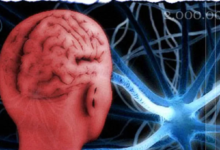US Study Finds Chronic Insomnia Accelerates Brain Aging and Impairs Cognitive Function

A recent study conducted in the United States has revealed that chronic insomnia not only causes general fatigue but may also accelerate brain aging and increase the risk of cognitive decline.
Published in the journal Neurology, the research found that individuals suffering from chronic insomnia are 40% more likely to experience cognitive problems or dementia compared to those who sleep normally. Chronic insomnia is defined as difficulty sleeping at least three nights a week for three months or longer.
The study, conducted by researchers from the Icahn School of Medicine at Mount Sinai and the Mayo Clinic, followed approximately 2,800 healthy adults over five years. Participants’ sleep quality was monitored, cognitive tests were conducted, and a subset underwent brain imaging.
The results showed that those with chronic insomnia experienced faster declines in memory and thinking skills. Researchers told HealthDay that persistent sleep difficulties can lead to cognitive deterioration equivalent to four years of brain aging.
Brain scans also revealed changes associated with Alzheimer’s disease, including increased white matter damage and the presence of amyloid plaques.
The researchers noted that these findings “suggest chronic insomnia may be an early indicator or contributing factor to future cognitive problems.”
They emphasized the need for further studies to determine whether improving sleep quality—through therapy, medication, or healthy lifestyle habits—could help protect brain function and slow cognitive decline over time.








